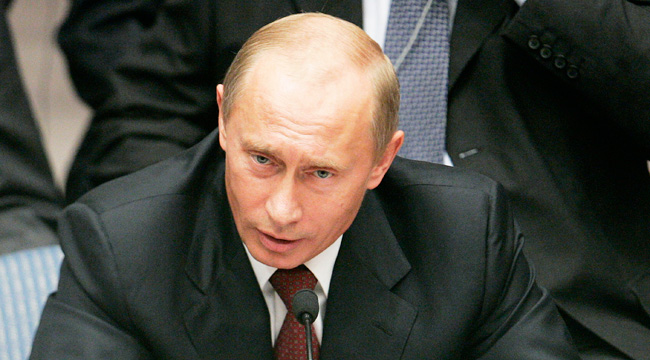
The Justice Department and Congress will continue to dig deep into Russia’s interference in the U.S. election for quite some time, but in the meantime, there’s been a not-entirely unexpected development. Russia is now pointing fingers at the U.S. for what it’s calling “direct interference” in its own upcoming presidential election, during which Vladimir Putin will battle to maintain his position. In short, Putin is not happy that the U.S. made comment upon his country shutting down a popular opposition candidate.
The matter began this week when Russia’s Election Commission barred the campaign of Alexei Navalny, not necessarily because Putin feared that Nalvany could win but because Nalvany was the chief architect of the most successful anti-Putin demonstration to date, which saw anti-corruption rallies take place in nearly 100 Russian cities in March. In response to the commission’s obvious move, the U.S. State Department issued a statement to Business Insider:
“These actions indicate the Russian government has failed to protect space in Russia for the exercise of human rights and fundamental freedoms. More broadly, we urge the government of Russia to hold genuine elections that are transparent, fair, and free and that guarantee the free expression of the will of the people, consistent with its international human rights obligations.”
As a result, Russian Foreign Ministry spokeswoman Maria Zakharova fired back on Facebook while making her country’s position clear:
“This State Department statement, which I’m sure will be repeated, is a direct interference in our electoral process and internal affairs … The funniest thing is that these are the same people who just tagged RT and Sputnik as foreign agents, who are harassing Russian media around the world and who are investing huge amounts of money into ‘countering Russian propaganda,’ which is how they label anyone who they disagree with.”
The rebuttal probably shouldn’t come as a surprise, given how (according to President Trump) “insulted” Putin feels by accusations that he directed Russians to hack in an effort to boost Trump. However, and while the U.S. has a lengthy history of its own in interfering with other countries’ elections, there’s a big difference between what Russia did (and U.S. intelligence agencies agree there was “conclusive” evidence as such) and the State Department speaking out on the importance of transparent and fair elections.
(Via New York Times, USA Today, Business Insider & Washington Post)
